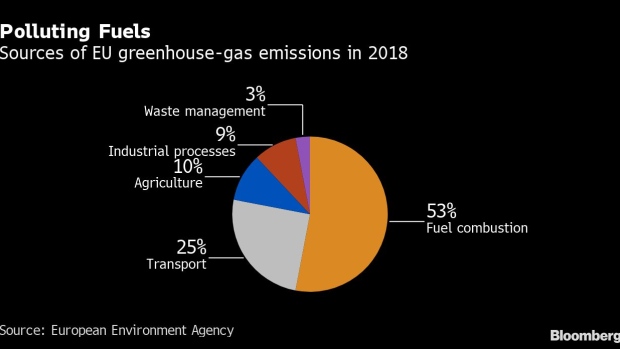Mar 22, 2021
Investors With $2 Trillion Urge EU to Make Agriculture Greener
, Bloomberg News

(Bloomberg) -- The European Union’s flagship agricultural policy risks undermining the bloc’s net-zero climate targets because it supports high-polluting food industries, according to a group of investors and policy experts.
Reforms to the Common Agriculture Policy don’t go far enough to address climate change and biodiversity, investors managing 2 trillion euros ($2.4 trillion) of assets said Monday. The policy will give farmers of high-emitting commodities like beef bigger subsidies for producing more, the group said. It urged the inclusion of climate targets in the distribution of the payments, which make up one-third of the EU budget.
Greening agriculture is one of the biggest challenges in the fight against climate change. The EU is decarbonizing its economy, but agriculture, the third-largest contributor of greenhouse gases, has seen little reduction in the past 15 years.
“Some of the main barriers for further improvements in sustainability have to be resolved by policymakers,” Peter van der Werf, senior engagement specialist at Robeco Institutional Asset Management BV, said in a statement. Reform in the agriculture policy is important “to ensure that any subsidies provide the right incentives for farmers to align with the Paris Agreement,” he said.
The change will be crucial for climate mitigation, reversing emissions and long-term environmental resilience, said the group which includes Legal & General Investment Management and Brunel Pension Partnership.
Its recommendations include shifting incentives from prioritizing yields to those that put a value on sustainable agriculture.
©2021 Bloomberg L.P.


